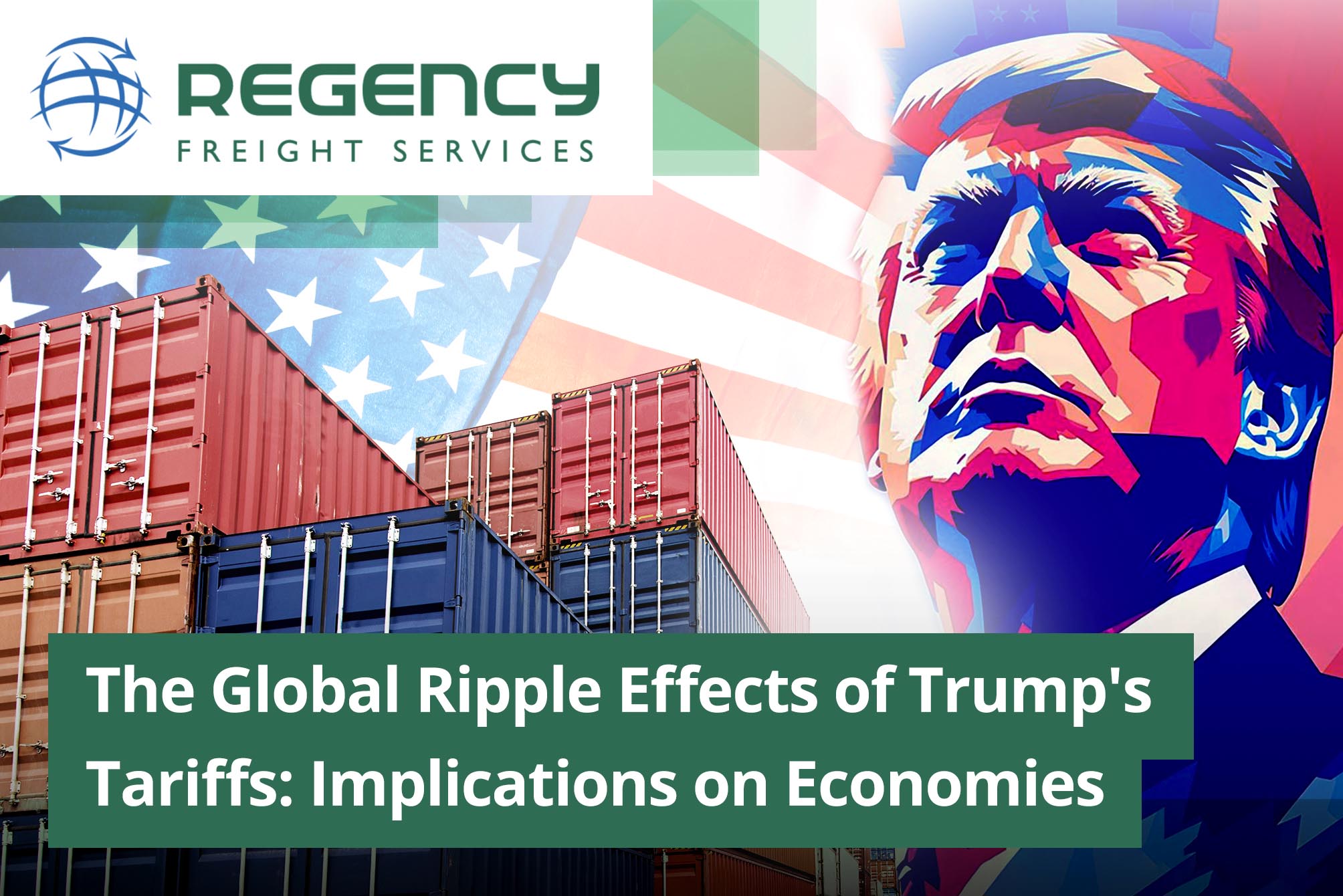The Global Ripple Effects of Trump's Tariffs: Implications on Economies6 February 2025
As President Donald Trump assumes his second term in office, his campaign promises to restructure trade policies through expanded tariffs are sparking concerns about their far-reaching global consequences. These measures, aimed at addressing unfair trade practices and rebalancing relationships, carry profound implications for businesses and economies intertwined with the United States. A Transformational Shift in US Trade Policy During his first term, President Trump introduced tariffs targeting Chinese goods and materials like steel and aluminium while also threatening action against trading partners over digital services taxes. His second term is poised to amplify these efforts, with a proposed universal tariff of 10% - 20% on all imports and a steep 50%-60% tariff on Chinese goods. If enacted these policies mark a significant departure from traditional US trade strategies, challenging industries reliant on global supply chains, exports, and cross border investments. The unpredictability of these policies, facilitated by executive authority, adds complexity for businesses attempting to adapt. Global Supply Chain Disruptions The cornerstone of Trump's trade agenda-broad tariffs us expected to create significant disruptions for economies deeply integrated into global supply chains. 1. Emerging Markets: Manufacturing hubs such as Vietnam, Mexico, and Malaysia, reliant on exports to the US, may face declining demand or forced price adjustments to remain competitive. 2. China: As the primary target of US tariffs, China could see reduced exports to the US, slower economic growth, and a need to redirect good to alternative markets. 3. UK: For UK exporters, a universal tariff poses immediate challenges. Businesses must choose between absorbing costs or raising prices, risking reduced US market demand and squeezed profit margins. Proposed steep tariffs on Chinese goods further complicate matters as many UK products rely on Chinese components, potentially driving up productions costs. Additionally, surplus Chinese goods diverted from the US could destabilize UK Markets. Post Brexit supply chain disruptions have already tested UK companies, and these tariffs may intensify challenges, necessitating a reassessment of supply chain strategies. 4. Supply Chain Reconfiguration: Economies like South Korea and Germany, which serve as intermediaries or suppliers for US-bound products, may experience ripple effects as businesses reconfigure supply chains to reduce exposure to US tariffs. Trade Diversions and Market Imbalances Trade diversion redirecting goods originally intended for the US to other markets is anticipated to present challenges and opportunities: 1. European Union: An influx of lower cost Chinese goods could heighten competition for local manufacturers. 2. Southeast Asia and Africa: These regions might attract redirected trade flows, offering growth opportunities but also risks of oversupply and local market distortions. US Tariff hikes are unlikely to occur in isolation. Major trading partners such as the EU and China are expected to retaliate through tariffs or trade barriers, further disrupting global trade flows and increasing costs, delays, and uncertainties for businesses operating across multiple markets. Preparing for an Uncertain Future The dynamic nature of US Trade Policy necessitates a proactive approach for businesses globally. Companies should prioritize: 1. Reassessing Supply Chains: Reviewing sourcing, logistics, and partnerships to minimize exposure to high tariff goods. 2. Monitoring Trade Developments: Staying informed about the changes in the US and global trade policies to anticipate and respond effectively. 3. Diversifying Markets: Reducing reliance on the US Market and exploring opportunities in other regions to mitigate risks. 4. Engaging in Advocacy: Collaborating with industry groups and policy makers to advocate for more predictable trade policies. Broader Economic Implications Heightened trade tensions may slow global economic growth, increase inflationary pressures, and disrupt established supply chains. Emerging economies particulary those reliant on US exports or indirectly affected by redirected trade flows may face acute challenges. As the world navigates this new chapter in US trade policy, adaptation, innovation, and collaboration will be key to navigating these shifts effectively. By staying agile and proactive, stakeholders can capitalize on opportunities amidst an evolving trade environment. Source: Logistics Insider |
|
   |
